Unlike most of my contemporaries in Indian English Poetry, I have never had the opportunity to meet Jayanta Mahapatra or to know him personally. But like every reader of his verse, I have been, both, held captive and transcended by the simplicity of his poems, their poignant imagery, incisive social realism, and their persistent reaching for the infinite. (“Let me assure myself that I am still of this world./ The riverbank scents with flowers for lovers/ to walk again. A starving mother sells her child./ How will I know where I am, if I have this feeling/ of wresting a new body out of this sad old one?” – ‘Believing’) Also, like almost every other published poet in India, I have summoned courage to send him my debut collection of poems and have received the priceless gift of a letter in response, his heartfelt words of encouragement in his firm and elegant hand bespeaking the incandescent generosity that was so characteristic of his spirit.
To say, however, having read his poems, that one does not know Jayanta Mahapatra personally, would, very marginally, fall short of blasphemy for if there ever was a poet who built his poetry entirely upon personal experiences and refused to use language for evasion, concealment or disguise, it was undeniably he. “A poet is, perhaps, only right when he says in his poem what he has actually known,” he writes in ‘Face to Face with the Contemporary Poem’. Jayanta Mahapatra who described himself as “an Oriya poet who, incidentally writes in English” (‘Hedging the Heart’) wrote lifelong of the world of the body and mind he distinctly and eloquently inhabited, his poetry merging as richly and as organically with the landscape and spirit of Orissa as breath with air, tears with rain, and the past with memory.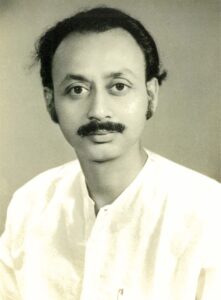
For Jayanta da, the question of language in poetry was of pivotal importance for not only did he look upon language as the fabric through which the particularity of experience could be brought home and its universality engendered but he also saw poetry as the essential site of language’s nativity. Poetry, as he writes in ‘The Absence of Absolutes’, “is a sort of surrender to the flux of language, a language born out of both history and society. This implies that poems are where the language gets made; made because of the belief the poet has in himself or herself, in his role or mission. And through poetry language either gets richer or poorer, healthier or sicker. Poetry has no choice. When language fails, poetry fails too.”
This relationship between language and the experience it encodes or forwards, is often a source of anguish to the poet because responsible linguistic use implies bearing the burden of “language’s tolerance and its provocation.” “There were times,”, Mahapatra writes, “when I went through extremes of experience, and it was but a natural consequence of these periods when I found that the language of the poem did not conform to the set standards of syntax or form. Consciousness then, at such times, doesn’t remain whole; it is crucified on the cross of language.” (‘The Absence of Absolutes’) It is this struggle between experience and language, the signified and the signifier that draws an arc of desire from speech to speechlessness in Jayanta da’s poems.
‘A Tale, to Begin With’ from his last collection Noon: New and Selected Poems, in standing at the liminal doorway between the poet looking at the world looking at himself is, perhaps, the most autobiographical poem in Jayanta Mahapatra’s oeuvre, and in blending confession, testimony and prophecy, is arguably one of the most valuable testaments of his nonagenarian life – outer and inner, a most profound obituary to himself as poet and man:
He’s there, inside the chaos of words.
Of course he’s been living in Cuttack
But not many there know him.
Sometimes they’d say:
Oh! Jayanta Mahapatra?
That man?
Oh he lives in dreams
and will die in his dreams one day.
How long can he hold on
to the vast sky all alone?
That’s right,
Jayanta Mahapatra never did anything worthwhile.
He had a heart of course
And whatever little space was in there
He kept it solely to bury his friends and lovers
In the earnest hope
That he would finally find himself.
Today, Jayanta Mahapatra has not only found himself but is helping each of us find ourselves in that borderline zone between being and expression, doubt and progress, promise and attainment. There is no doubt that he will continue to live in us, “growing flowers in the air”. (‘Bird and Sky’)
*

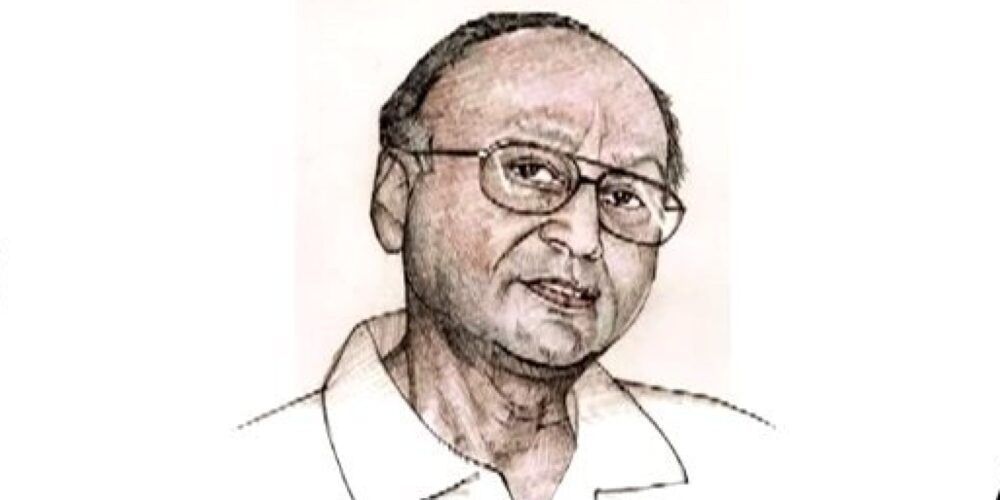


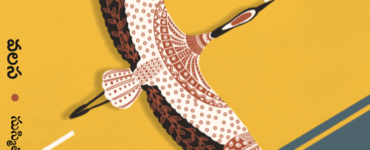

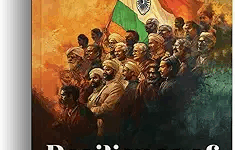
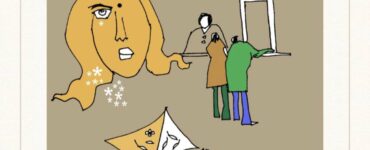

Add comment